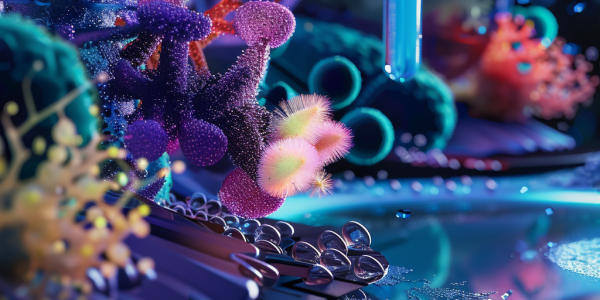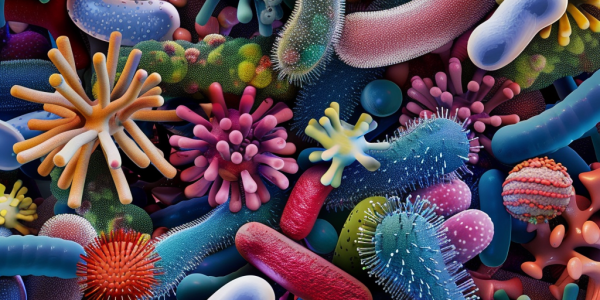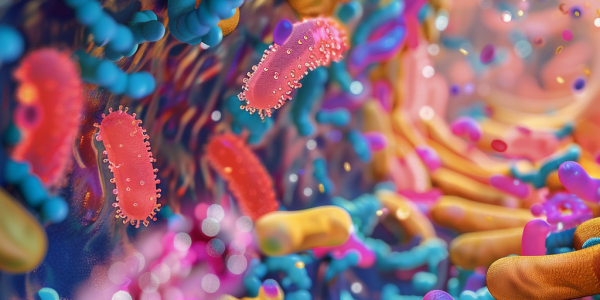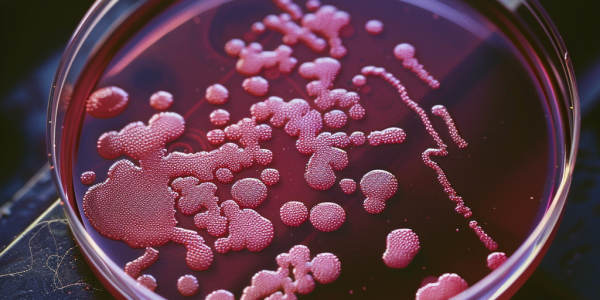Chronic Stress Linked to Accelerated Colorectal Cancer Spread, Study Reveals
A groundbreaking study from China reveals that chronic stress accelerates colorectal cancer spread by disrupting gut microbiota. Presented at UEG Week 2024, the research highlights the critical role of beneficial gut bacteria in cancer immunity and suggests that stress management could enhance cancer treatment. This study emphasizes the connection between mental health and cancer progression, paving the way for innovative therapeutic strategies.
Study Reveals Unique Gut Flora in Children with Autism
Recent research has uncovered a potential breakthrough in the diagnosis of autism spectrum disorder, revealing unique gut flora in children with autism. By examining stool samples from over 1,600 children, researchers identified distinct biological markers that could serve as the foundation for a future diagnostic tool. This innovative approach offers hope for a more objective and efficient diagnosis process, potentially leading to earlier detection and access to more effective treatments for children with autism.
Maintaining a Healthy Digestive System for Overall Well-Being
Maintaining a healthy digestive system is crucial for overall well-being and good gut health. Learn how to support your digestive health through diet, probiotics, hydration, stress management, and exercise. Avoid habits that can harm your gut, such as smoking and excessive alcohol consumption. Consult with a healthcare provider if you are experiencing digestive issues for proper diagnosis and treatment. Take care of your digestive system to improve your quality of life.
Gut Microbes and B Vitamins Linked to Parkinson’s Disease
Discover the groundbreaking study linking gut microbes to Parkinson’s disease development and the potential treatment option of B vitamins. Learn how supplementing riboflavin and biotin could benefit patients with gut dysbiosis. Explore the connection between changes in the gut microbiome and reduced levels of essential B vitamins in individuals with Parkinson’s disease.
Link Between Gut Health and Brain Function in Resilient Individuals Revealed
A recent study from UCLA Health Sciences reveals the connection between gut health and brain function in resilient individuals. The research highlights how high resiliency is linked to enhanced cognition, emotion regulation, and a healthy gut microbiome. By identifying these traits, targeted interventions can be developed to mitigate stress and its effects, offering valuable insights into disease prevention strategies.
Link Between Gut Bacteria and Parkinson’s Disease Uncovered in Recent Study
A recent study from Nagoya University Graduate School of Medicine in Japan found a connection between gut bacteria, B vitamin deficiency, and Parkinson’s disease. The research suggests that supplementing B vitamins could be a potential therapeutic approach for treating PD, which affects around 1-2% of individuals aged 55 and older. The study highlights the role of gut microbiota in maintaining the intestinal barrier and preventing toxin penetration into the bloodstream, ultimately impacting brain health and neurotransmission processes.
Unveiling the Significance of the Small Intestine Microbiome in Enhancing Gut Health
Discover the latest insights into the small intestine microbiome and its crucial role in enhancing gut health. Explore how specific microbial populations in the upper intestine impact digestion, metabolism, and immune function. Uncover the significance of metabolites produced in the small intestine for weight loss and diabetes management, and learn about the potential benefits of Monjaro in improving health outcomes.
Study Reveals Gut Microbiome’s Role in Age-Related Inflammation
Recent research reveals the potential role of the gut microbiome in age-related inflammation. A study found that transplanting gut microbes from aged mice into young mice increased inflammation, highlighting a link between gut microbiome changes and systemic inflammation in aging individuals. The researchers emphasized the importance of understanding this relationship to combat age-related health issues.
Breakthrough in Cancer Research: Microbiome-Based Therapies Show Promise
A recent breakthrough in cancer research by a team from POSTECH and ImmunoBiome focuses on the use of a dietary-derived bacterial strain, IMB001, to enhance anti-tumor responses through ‘nutritional immunity’. The team’s study, published in Nature Immunology, reveals the potential of microbiome-based cancer therapies. Dr. Sin-Hyeog Im has developed a novel strategy for identifying beneficial bacteria suitable for cancer treatment, with plans to start a clinical trial in 2025. IMB001 has shown promising results in preclinical studies across various cancers, slowing down tumor progression and enhancing checkpoint inhibitor therapy efficacy.
The Importance of Gut Health for Overall Well-Being
Maintaining a healthy gut microbiome is crucial for overall well-being, according to Professor Janes Walter from University College Cork’s APC Microbiome Ireland research center. Walter suggests dietary changes like incorporating diverse foods, whole grains, fiber, plant-based proteins, and fatty fish while avoiding saturated fats and ultra-processed foods. By making these adjustments, individuals can reset and improve their gut health, leading to a healthier life.










